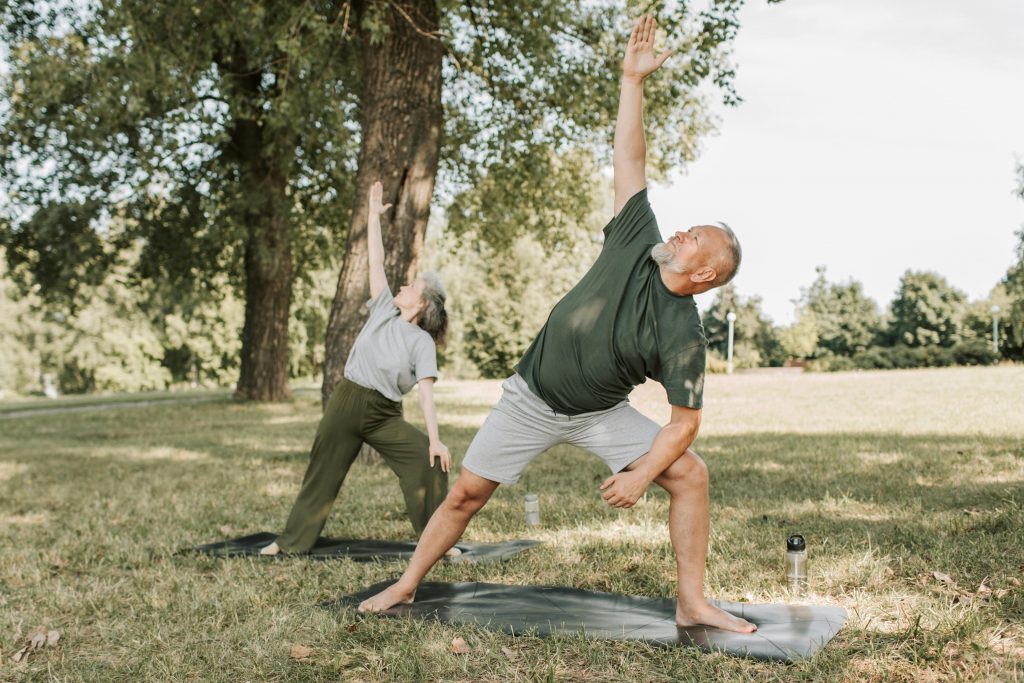
- Encourage a balanced diet with various nutritious foods, including fruits, lean proteins, vegetables, and whole grains.
- Planned and prepared meals that catered to dietary needs and preferences, ensuring they were easy to make.
- Promote regular physical activity through walking, stretching, water aerobics, and tai chi.
- Introduce activities for mental stimulation, such as puzzles, reading, board games, and new hobbies, to promote cognitive engagement.
- Foster social interaction and consider professional help holistically addressing physical, emotional, and social needs.
Introduction
Many adult children and caregivers embark upon the journey of caring for aging parents, often faced with a blend of love, duty, and concern. As our parents age, their needs evolve, presenting new challenges and requiring a thoughtful approach to ensure their overall wellness. This article aims to provide comprehensive strategies to help you navigate this important phase, focusing on physical health, emotional well-being, social interaction, and practical solutions to enhance the quality of life for your elderly loved ones.
Understanding the Needs of Aging Parents

Physical Needs
Aging brings about various physical changes that require attention and care. Common concerns include mobility issues, chronic diseases, and nutritional deficiencies. Preventive measures such as regular medical check-ups, balanced nutrition, and physical therapy can play a significant role in maintaining physical health.
Emotional Needs
Mental health is equally crucial. Aging parents may experience stress, depression, or feelings of loneliness. Providing emotional support, fostering open communication, and encouraging activities that reduce stress and boost mental health can significantly improve their emotional well-being.
Social Needs
Social interactions are vital for the mental and emotional health of elderly individuals. Encouraging participation in social activities and community events and maintaining regular contact with friends and family can help combat isolation and keep them engaged and connected.
Physical Health
Common Health Concerns
As parents age, they may face various health issues such as arthritis, cardiovascular diseases, diabetes, and osteoporosis. Regular medical check-ups are essential to monitor these conditions and manage them effectively.
Preventive Measures
- Mobility: Encourage gentle exercises like walking, swimming, or yoga to maintain flexibility and strength.
- Nutrition: Ensure a diet rich in fruits, lean proteins, vegetables, and whole grains. Supplements may be necessary to address specific deficiencies.
- Medical Check-ups: Schedule regular visits to healthcare providers to catch any health issues early and manage chronic conditions effectively.
Emotional Well-being
Importance of Mental Health
Mental health should not be overlooked. Aging parents often face significant life changes that can affect their emotional state. It’s essential to recognize signs of depression, anxiety, and stress.
Strategies for Emotional Support
- Open Communication: Maintain open lines of communication to understand their feelings and concerns.
- Stress Reduction: Introduce relaxation techniques such as meditation, deep breathing exercises, or hobbies they enjoy.
- Professional Help: Don’t hesitate to seek the assistance of mental health professionals if needed.
Social Interaction
Role of Social Activities
Social engagement is a key component of wellness for aging parents. It helps prevent feelings of loneliness and keeps their minds active.
Encouraging Social Engagement
- Community Involvement: Encourage participation in community centers, clubs, or senior groups.
- Family Gatherings: Organize regular family get-togethers to keep them connected.
- Technology: Leverage technology to help them stay in touch with distant friends and family through video calls and social media.
Implementing Practical Solutions
Adapting the Home Environment
Modifying the home environment can greatly enhance safety and comfort for elderly parents.
- Safety Modifications: Install bathroom grab bars, ensure proper lighting, and remove tripping hazards.
- Comfort Adjustments: Consider adjustable beds, ergonomic furniture, and accessible storage solutions.
Daily Assistance and Scheduling
A structured daily routine can help manage day-to-day tasks and ensure a balanced lifestyle.
- Daily Routine: Establish a consistent schedule that includes time for meals, exercise, rest, and social activities.
- Task Management: Break down tasks into manageable steps and use reminders to keep track of important activities.
Recognizing When to Seek Professional Help
There may come a time when a professional home health care service is necessary to provide the best care for your aging parents.
- Signs to Look For: Difficulty performing daily activities, frequent medical issues, or cognitive decline.
- Choosing a Service: Research a reputable service with skilled caregivers who can offer personalized care.
Encouraging Healthy Lifestyle Choices

Nutrition and Diet
A balanced diet is crucial for maintaining health and vitality in aging parents.
- Nutritious Foods: Incorporate a variety of fruits, lean proteins, vegetables, and whole grains.
- Meal Planning: Plan meals that are easy to prepare and cater to their dietary needs and preferences.
Physical Activity
Regular exercise is essential for physical health and mental well-being.
- Suitable Activities: Encourage walking, stretching, water aerobics, or tai chi.
- Routine: Establish a regular exercise routine that fits their capabilities and interests.
Mental Stimulation
Keeping the mind active is just as important as physical health.
- Engaging Activities: Introduce puzzles, reading, board games, and learning new skills or hobbies.
- Social Interaction: Promote activities that involve social interaction to keep their minds engaged and spirits high.
Final Thoughts
Caring for aging parents is a multifaceted responsibility that requires a holistic approach. You can significantly enhance their quality of life by addressing their physical, emotional, and social needs and implementing practical solutions. Family support is crucial, but don’t hesitate to seek professional help when necessary. Ensuring wellness for your aging parents is a continuous journey, but you can make it rewarding with the right strategies.


